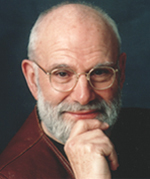 |
Why the Brain Loves Music Thursday, October 18th, 2007 |
Music has a unique power to alter the brain in remarkable and complex ways, and we humans are a musical species no less than a linguistic one. |
|
| Dr. Oliver Sacks Columbia University Oliver Sacks was born in 1933 in London, England (both of his parents were physicians) and earned his medical degree at Queen's College, Oxford. In the early 1960s, he moved to the United States and completed an internship in San Francisco and a residency in neurology at UCLA. Since 1965, he has lived in New York. He is currently Professor of Clinical Neurology and Psychiatry at Columbia University. In 1966 Dr. Sacks began working as a consulting neurologist for Beth Abraham Hospital, a chronic care facility in the Bronx where he encountered an extraordinary group of patients, many of whom had spent decades in strange, frozen states, like human statues, unable to initiate movement. He recognized these patients as survivors of the great pandemic of sleepy sickness that had swept the world from 1916 to 1927, and treated them with a then-experimental drug, L-dopa, which enabled them to come back to life. They became the subjects of his second book, Awakenings (1973), which later inspired a play by Harold Pinter ("A Kind of Alaska ") and the Oscar-nominated Hollywood movie, "Awakenings," with Robert De Niro and Robin Williams. Dr. Sacks is perhaps best known for his 1985 collection of case histories from the far borderlands of neurological experience, The Man Who Mistook His Wife for a Hat , in which he describes patients struggling to live with conditions ranging from Tourette's Syndrome to autism, parkinsonism, musical hallucination, phantom limb syndrome, schizophrenia, retardation and Alzheimer's disease. (This book later inspired a dramatic work by Peter Brook, "L'Homme Qui. . . .) As a physician and a writer, Oliver Sacks is concerned above all with the ways in which individuals survive and adapt to different neurological diseases and conditions, and what this experience can tell us about the human brain and mind. His books exploring these themes have been bestsellers around the world and are used widely in universities in courses on neuroscience, writing, ethics, philosophy and sociology. They have served as the inspiration for artists working in forms as varied as poetry, essay, documentary, drama, painting, dance, cinema and fiction. In 1989, Dr. Sacks received a Guggenheim Fellowship for his work on what he calls the "neuroanthropology" of Tourette's syndrome, a condition marked by involuntary tics and utterances, and how its symptoms can be perceived differently in different cultures. His nine books, which also include Migraine (1970), A Leg to Stand On (1984) , Seeing Voices: A Journey into the World of the Deaf (1990), An Anthropologist on Mars (1995), and The Island of the Colorblind (1996), have received numerous awards and have sold several million copies worldwide in 22 languages. His most recent books are Oaxaca Journal (2002) and Uncle Tungsten: Memories of a Chemical Boyhood (2001). He is a regular contributor to The New Yorker and The New York Review of Books , as well as various medical journals, and he is an honorary fellow of the American Academy of Arts and Letters, the American Academy of Arts and Sciences, the New York Academy of Sciences, and Queen's College. The New York Times has referred to Dr. Sacks as "the poet laureate of medicine," and in 2002 he was awarded the Lewis Thomas Prize by Rockefeller University, which recognizes the scientist as poet. Dr. Sacks has been awarded honorary doctorates from Georgetown University, Tufts University, the College of Staten Island, New York Medical College, the Medical College of Pennsylvania, Bard College, Queen's University (Ontario), and the University of Turin. |